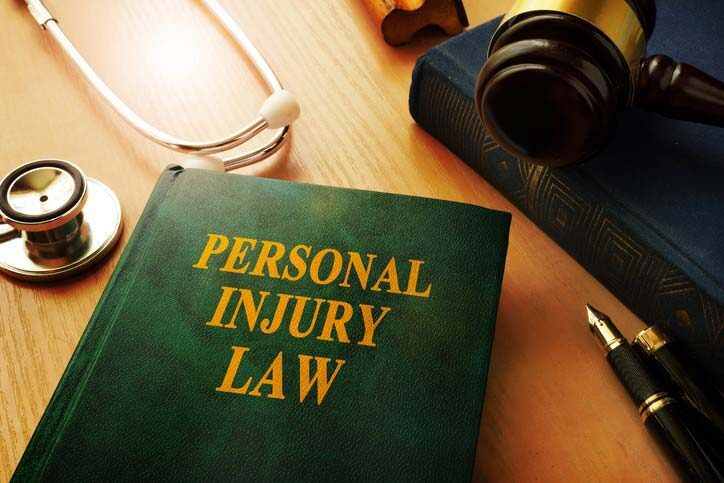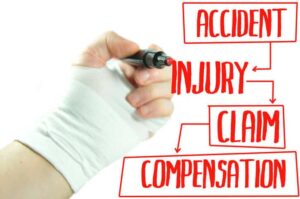
Cases in which more money is at stake may take longer to investigate and resolve.
In the simplest of terms, a Boston car accident can lead to a personal injury claim if you suffer bodily injuries and the other party involved is at least partially responsible. The value of your claim comes from the losses you suffered due to the accident, and even a minor collision, such as a fender bender, can result in a significant injury. Therefore, if you recently experienced a car accident, you may have the opportunity to recover your losses.
How to Protect Your Rights Following a Car Accident
What happens in the minutes and days following a car accident can directly affect a personal injury claim. However, you can take a few steps to protect your right to compensation and your physical and mental health. Follow these seven steps to help build a strong case:
- Immediately examine your body for injuries. Any rapid movement could exacerbate the damage if you suffered a severe injury. Try to remain calm and move slowly to access any pain or visible injuries, such as lacerations.
- Call for emergency medical assistance if necessary. If you feel you need urgent medical attention, that is the top priority. Call 911 and do not move unless you are in danger of further injury.
- Contact the local police department. If you have to call 911, the local station will dispatch police with the rest of the emergency assistance. If there is no need for emergency services, contact the local non-emergency number for police, and report the accident. Some cities do not dispatch police unless someone suffered an injury, but you can still report a minor accident later, either at the station or online.
- Speak to no one about the accident. You may have the instinct to speak as the adrenaline rushes through your body. However, you could say something that implies fault in the heat of the moment. Therefore, it is best to avoid speaking about the accident to anyone except the police.
- Document everything you see and remember. Take out your phone and snap photographs of the damages, including the injuries visible on your body. Write down what happened in the moments leading up to, during, and after the accident while you can still remember them vividly. Take pictures of the area as well. Even the position of the vehicles can speak volumes when determining fault.
- Get the contact information of everyone involved. You need the name, contact information, and a photograph of the insurance card from the other driver. You also want to collect information from any potential eyewitnesses.
- Go to urgent care or schedule an appointment with your doctor. Not needing emergency medical attention does not mean that you may not have significant injuries. Seeing a doctor after a car accident helps build your claim. Medical records provide clear evidence of an injury. The sooner you see a doctor after the accident, the less room you leave the insurer to speculate about how you received those injuries.
Sometimes people opt to handle the insurance claim themselves, which is a reasonable reaction to a minor car accident. However, victims in accidents involving injuries and significant damages often benefit from contacting an attorney right away.
Requirements for a Personal Injury Claim
To simplify the process of determining if your car accident warrants a personal injury claim, ask yourself these questions to figure out if your situation meets the three standard requirements:
- Was the accident the result of another party’s negligent action?
- Did you suffer an injury as a direct result of the accident?
- Did your injury result in damages?
Damages are a vital component of a personal injury claim. You could not sue to receive compensation for damages if no losses occurred.
Potential Damages From a Personal Injury Claim
Any accident resulting in injuries will likely have compensatory damages. These types of damages refer to the economic, meaning monetary, and noneconomic, meaning subjective, losses incurred. Examples include:
- The cost of present and future medical treatments
- Present and future lost income
- Decreases in income caused by a temporary or permanent disability
- Costs associated with replacing or repairing your damaged vehicle or other property
- Loss of consortium
- Loss of enjoyment in life
- Pain and suffering
- Emotional distress and mental anguish
- Loss of companionship
- Funeral and burial costs if the injured party died as a result of the accident
While uncommon, you may even receive an award of punitive damages if you prove that the defendant’s actions were grossly negligent. For example, suppose the at-fault driver was under the influence of drugs or alcohol or driving recklessly. In that case, the court may require them to pay punitive damages as a punishment, especially in wrongful death cases.
The Types of Negligence in a Personal Injury Cases
Negligence is an essential element of a personal injury lawsuit. As the plaintiff, you are responsible for proving that the defendant acted negligently. Sometimes the defense will respond with an accusation that you share fault for the accident. If true, it complicates the case, but it does not mean that you cannot receive at least some compensation for your losses. Whether or not you can depends on if your state follows the contributory negligence rule or the comparative negligence rule.
Contributory Negligence
Only four states and Washington, D.C. follow the contributory negligence rule. This is a very cut and dried approach to shared fault in a car accident. You cannot receive compensation in a contributory negligence state unless you are entirely blameless for the accident and resulting injuries.
Comparative Negligence
Most other states follow one of the two types of comparative negligence:
- Pure comparative negligence allows you to receive compensation regardless of how much fault for the accident belongs to you.
- Modified comparative negligence allows you to receive compensation if you are not more than half responsible for the accident.
Most states adhere to the modified comparative negligence rule. However, some set the threshold at 51%, meaning that you can still receive compensation as long as you are 50% responsible or less. Other states set the threshold at 50%, meaning that you must be 49% or less responsible to receive an award.
In action, the rule of comparative negligence works as follows:
- The court decides on an awarded amount for the compensatory damages.
- The court assigns a percentage of fault to both parties using a complex process.
- Assuming your state follows the modified comparative negligence rule, your percentage of fault will be deducted from the award as long as it is less than half.
Comparative negligence may even come up in negotiations for a settlement before trial. You may benefit from having the representation of an experienced attorney to protect your rights in that process.
A Personal Injury Attorney Can Answer Specific Questions About Your Case
If you have any questions about the property damage and injuries you suffered from a car accident, you should consider contacting a personal injury lawyer. Jason Stone Injury Lawyers require no upfront fee for an immediate case evaluation or to get started on your case. We understand the financial burden that often comes in the fallout of a car accident, and we aim to help without contributing to that stress. The first element of the Stone Cold Guarantee ensures we get paid only after you get paid. Contact our office any time of day for a free consultation. There’s No Obligation, Just Information.
Not Trusting What You’re Being Told?
Better Phone Stone
800-577-5188
 START MY NO OBLIGATION CONSULTATION
START MY NO OBLIGATION CONSULTATION











